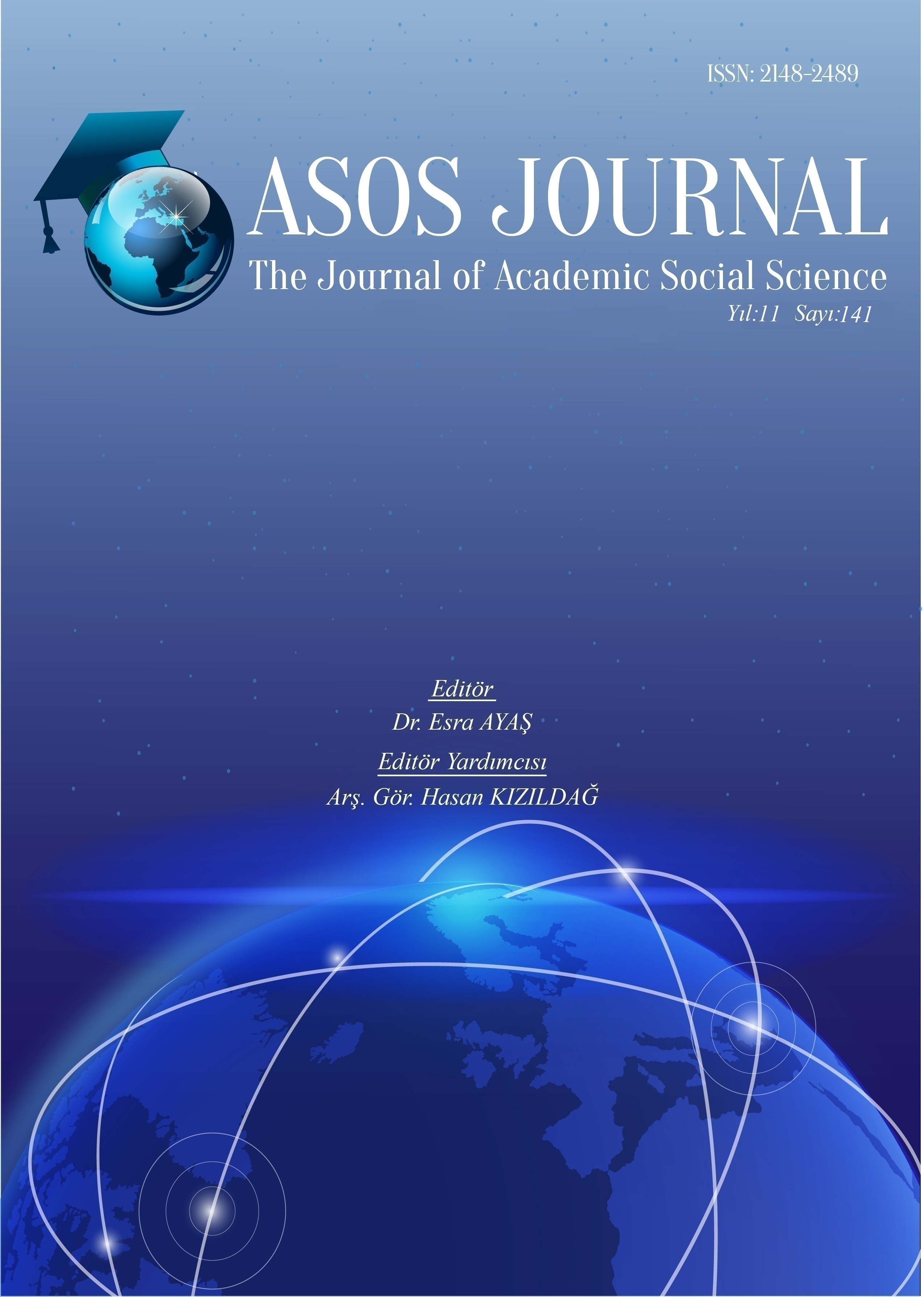Author :
Abstract
Bu çalışmada hazırlıksız yakalandığımız ve tüm dünyayı etkisi altına alan COVİD-19 pandemisinde müzik eğitiminin çevrimiçi eğitim sürecine uyumu ele alınmıştır. Müzik eğitiminin önemli bir ayağı olan çalgı eğitiminde gösterip yaptırma, birlikte seslendirme, eşlikleme gibi yöntemler oldukça önemlidir. Araştırmanın temel amacı flüt öğrencilerinin çevrimiçi flüt eğitimi sürecine ilişkin görüş ve düşüncelerini ortaya koymaktır. Elde edilen veriler çevrimiçi eğitim sürecinde yürütülen bireysel çalgı flüt derslerinin uzaktan eğitime uygunluğu, çevrimiçi eğitim sürecinde kullanılan platformun yeterliliği ve etkililiği, ek teknolojilerin performansa etkisi ve psikolojik etkileri öğrencilerin bakış açılarından değerlendirilmeye çalışılmıştır. Bu çalışmada nitel araştırma yöntemlerinden durum çalışması modeli kullanılmıştır. Verilerin toplanması amacıyla görüşme stratejilerinden açık uçlu görüşme türü kullanılmıştır. Çalışmada araştırma grubunu Ankara Gazi üniversitesi Eğitim Fakültesi müzik bölümü, Ankara Müzik ve Güzel Sanatlar üniversitesi icra sanatları bölümü, Kırşehir Ahi Evran Üniversitesi GSF Müzik bölümü, Burdur Mehmet Akif Ersoy Üniversitesi Eğitim fakültesi müzik bölümü, Isparta Süleyman Demirel Üniversitesi GSF Müzik bölümü, Karabük Üniversitesi GSF müzik bölümü, İstanbul Devlet konservatuvarı flüt bölümü, Kahramanmaraş Sütçü İmam Üniversitesi GSF müzik Bölümü, Hacettepe Devlet Konservatuvarı flüt bölümü ve Çankırı Karatekin Üniversitesi GSF müzik bölümlerinde öğrenim gören 10 flüt öğrencisi oluşturmaktadır. Öğrencilerle zoom üzerinden görüşme yapılarak 4 tane açık uçlu soru sorulmuştur. Toplanan veriler içerik analizi yöntemi ile çözümlenmiştir. Araştırma sonucunda öğrencilerin flüt eğitimi dersini yüz yüze yapmayı tercih ettikleri ancak pandemi sürecinde derslerin devam etmesi açısından kurtarıcı bir eğitim modeli olduğu yönünde görüş belirtmişlerdir. Araştırmada elde edilen verilere dayanarak teknik alt yapısı güçlendirilmiş, ses ve görüntü kalitesi müzik eğitimi düşünülerek tasarlanmış yeni bir öğrenme platformunun geliştirilmesi yönünde önerilerde bulunulmuştur.
Keywords
Abstract
This study investigates the adaptability of music teaching into online education during Covid-19 pandemic which affected the whole world and caught us all off guard. In instrument training, which is a significant part of music teaching, prevailing techniques such as modelling, vocalizing a composition together and accompanying are quite important. The main purpose of this study is to find out the perspectives and notions of flute learners towards online flute teaching. From students’ point of view, the data gathered throughout this study have been evaluated in terms of the suitability of one-on-one flute lessons into online education, the effectiveness and adequacy of the various tools utilized in online education, the effect of additional technologies on learners’ performance, and psychological effects of online flute education. Case study has been used in this study, being one of the qualitative research designs. Open ended questions were asked to the participants to gather data. Ten participants involved in this study are currently studying at Music Department Faculty of Education Ankara Gazi University, Performing Arts Department Music and Fine Arts University of Ankara, Faculty of Fine Arts Kırşehir Ahi Evran University, Music Department Faculty of Education Burdur Mehmet Akif Ersoy University, Music Department Faculty of Fine Arts Isparta Süleyman Demirel University, Music Department Faculty of Fine Arts Karabük University, Flute Department Istanbul State Conservatory, Music Deparment Faculty of Fine Arts Kahramanmaraş Sütçü İmam University, Flute Department Hacettepe State Conservatory, and Music Department Faculty of Arts Çankırı Karatekin University. Four open ended questions were directed at the participants through Zoom sessions. Data collected were analyzed through content analysis. The findings of the study show that students prefer to have flute lessons face-to-face rather than online education, yet they still acknowledge that online education served as a savior that enabled students to keep on learning. Based on the data acquired throughout the study, it was proposed that a new educational platform or tool should be developed with a tailor-made method to meet the needs of music teaching with its strengthened substructure and better audio-visual quality.





